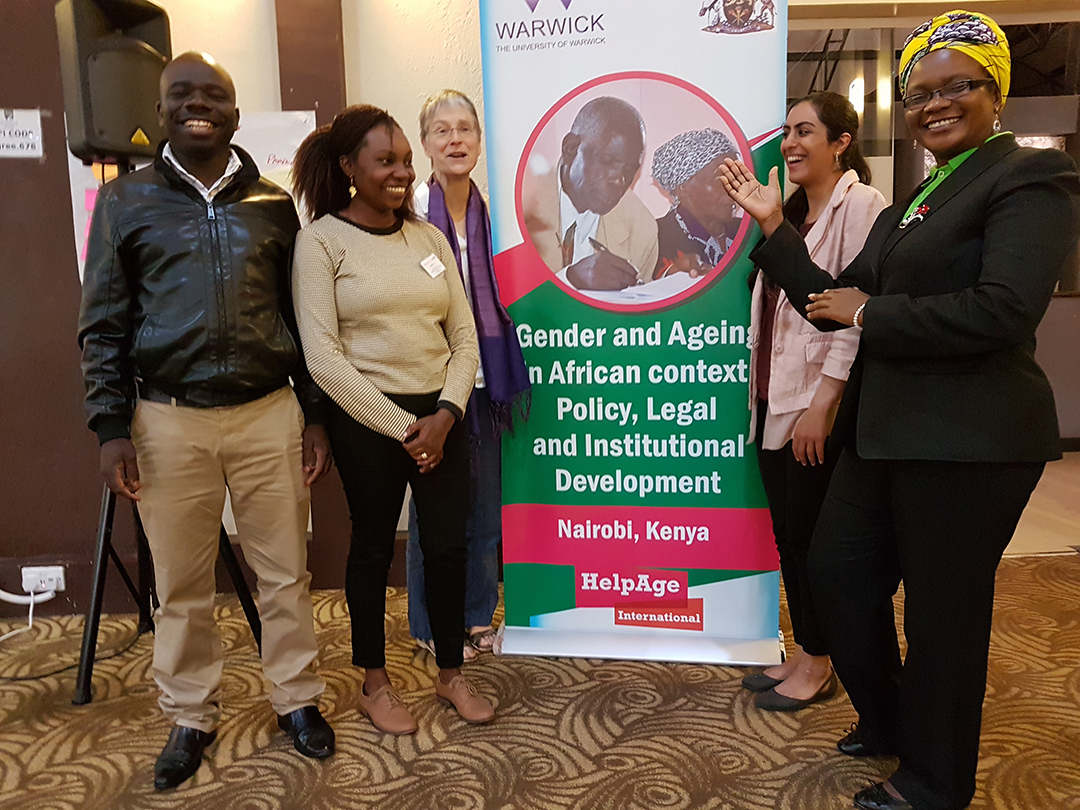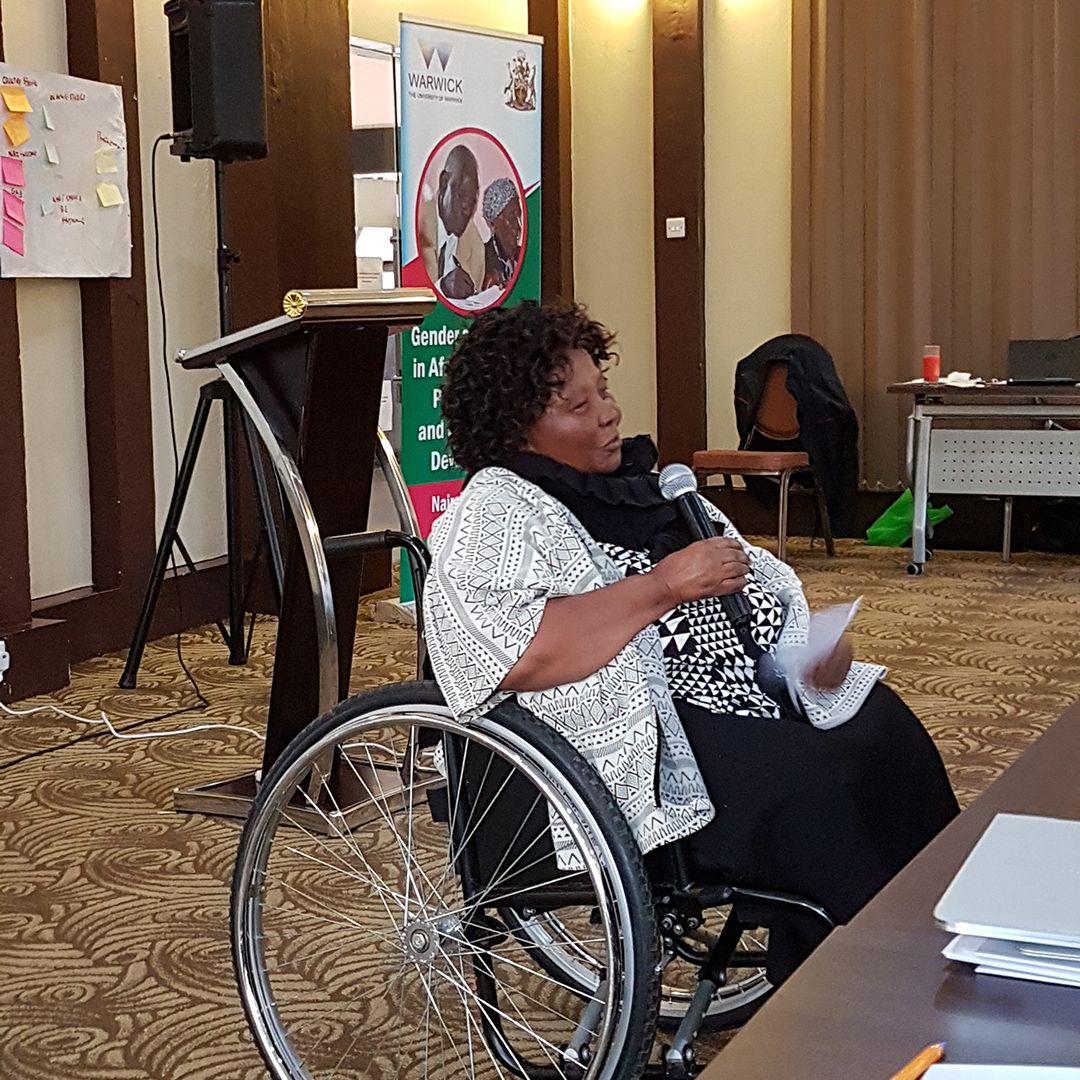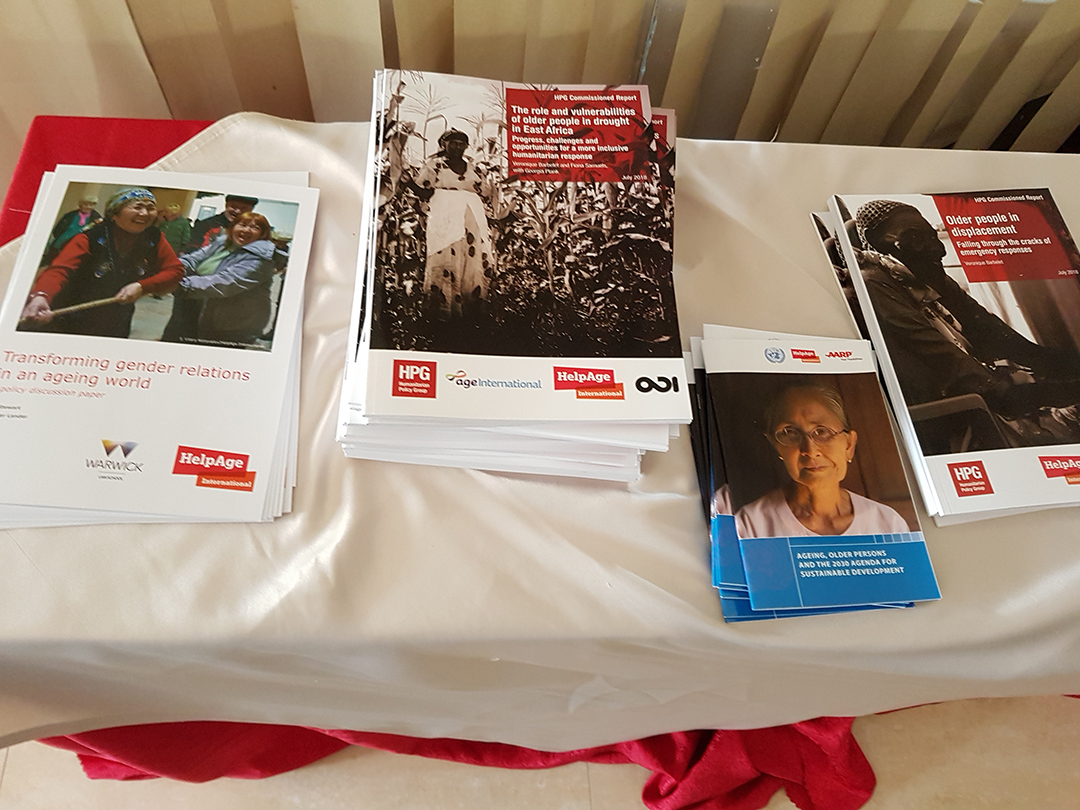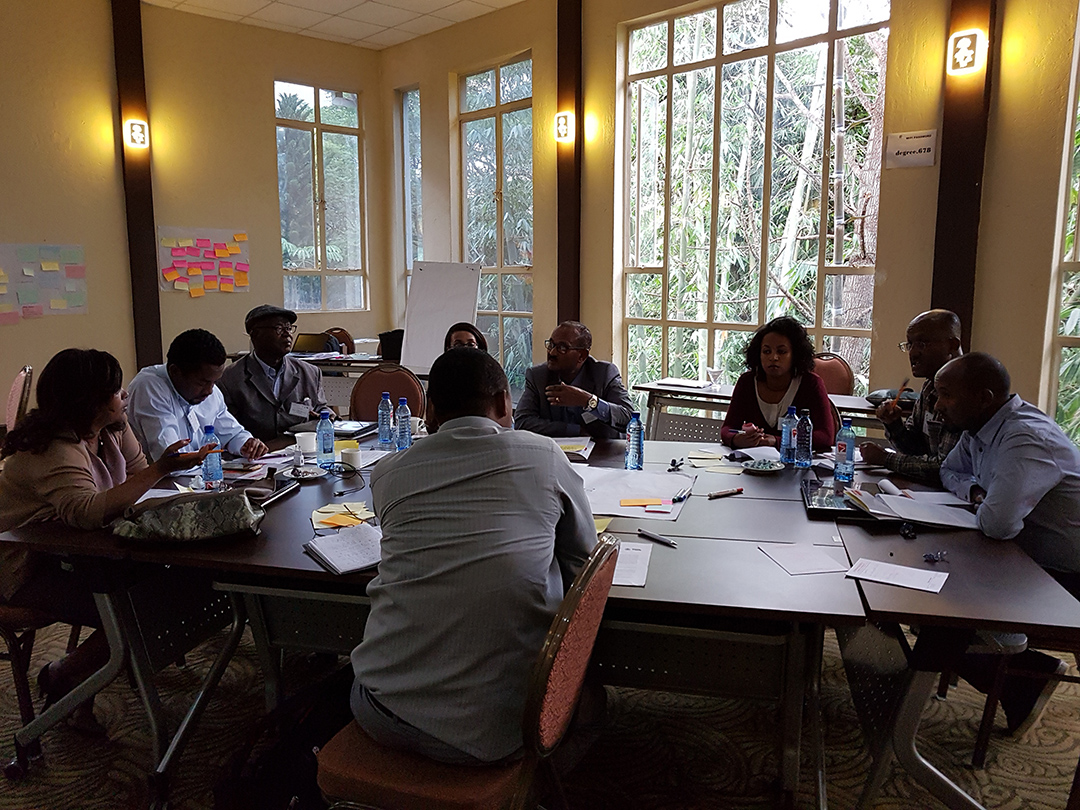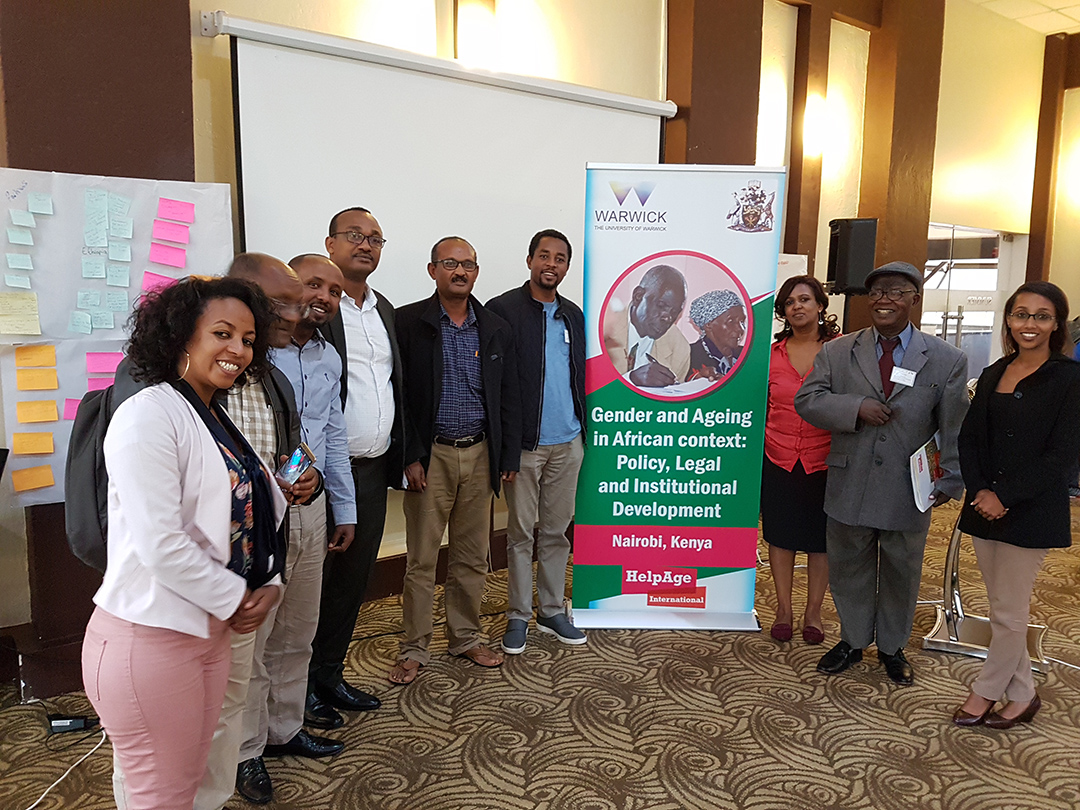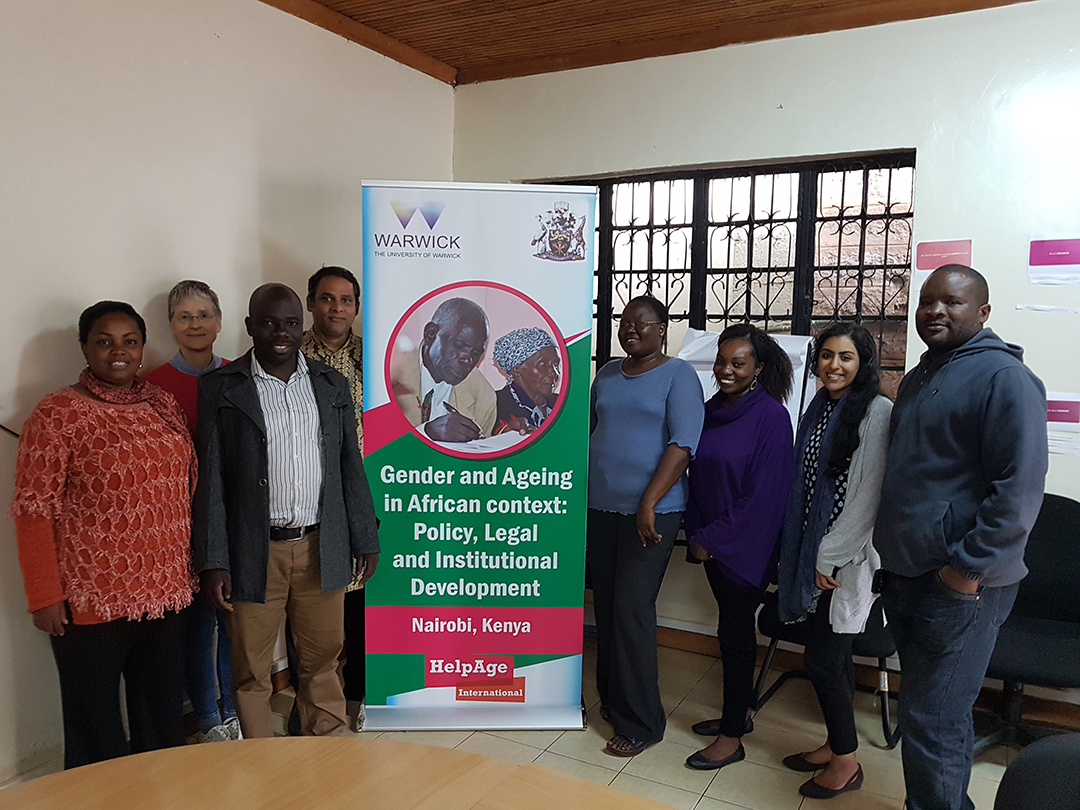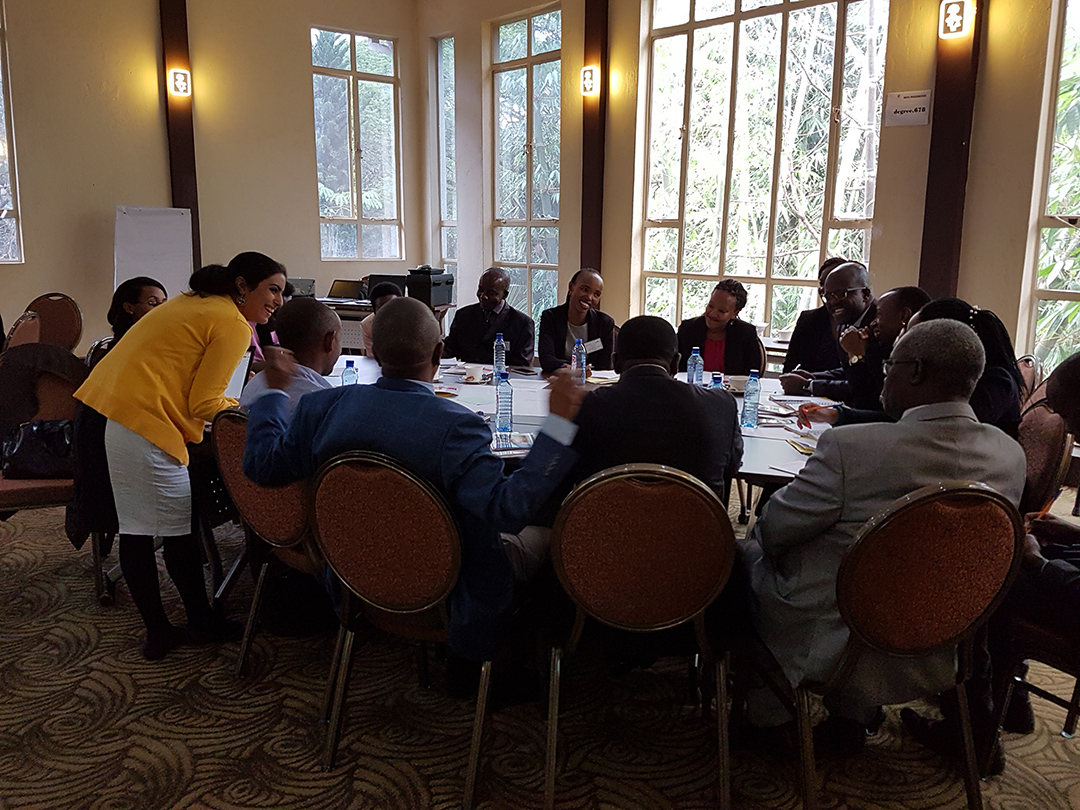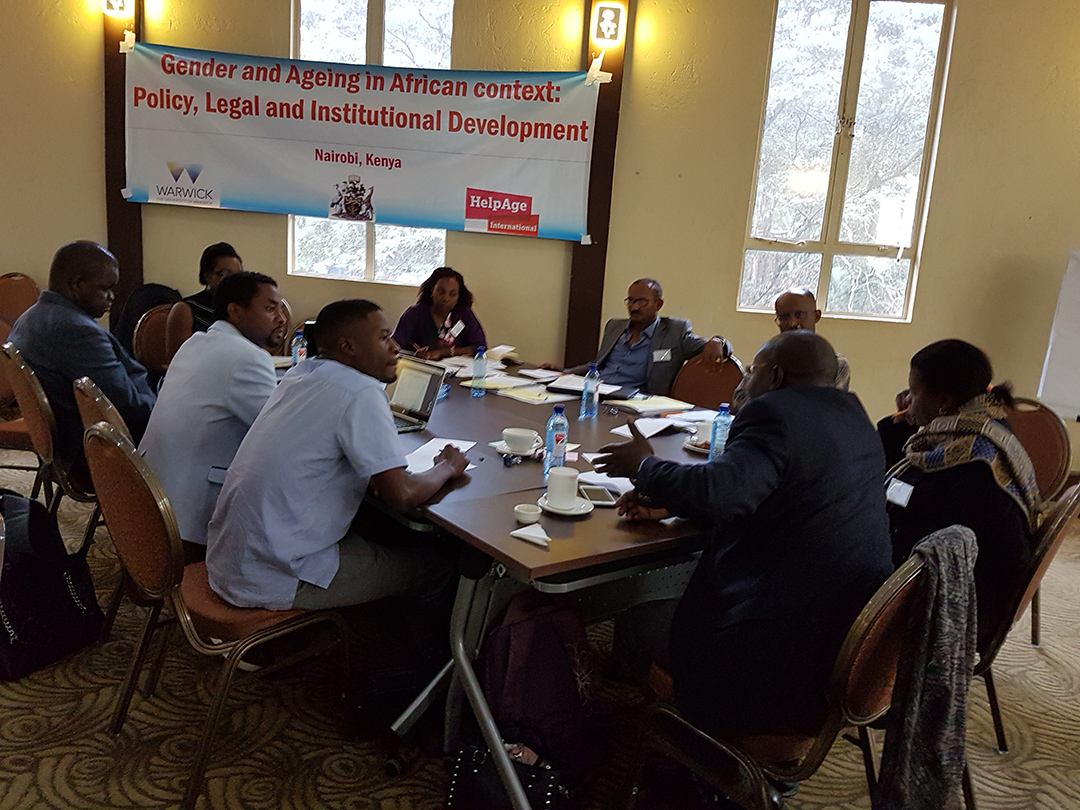Project design
Background
Africa is the youngest continent; economic policy imperatives focus on youth and realising the demographic dividend. It is also ageing rapidly –a welcome sign of growing prosperity.
Ageing as an issue of growing importance for international policymakers and decision takers. By 2050, the world will have almost 400 million people who are 80 years or older, making it the first time in history that the majority of middle-aged adults will have living parents.
Projections suggest that Sub-Saharan Africa specifically will see a rise from 32 million older people (60+) in 2008 to 212 million in 2050.
Increased prosperity leads to longer life expectancy, living longer brings challenges if there is no planning and support for long-term care, and no focus on the rights and needs of older citizens.
This collaborative project between Nairobi University Law Faculty members and HelpAge International’s East African regional team seeks to further develop previously funded work to inspire a gendered lifecourse perspective in programme delivery aimed at successfully meeting the UN SDGs.
Timeline
A potential Phase 2 research funded project would attempt to influence programme delivery towards achieving the UN Sustainable Development Goals (SDGs). The UN SDG’s objective of ‘leaving no one behind’ should be fully informed by a gendered and rights-based life course approach to ageing.
While there is an emerging regional and policy framework relating to the rights of older people and a more established women’s right framework the state level challenge and focus for this present phase of the project is to build on and extend existing partnerships to co-design a larger research project (the Phase 2 project) undertaken in Kenya, Ethiopia and Malawi that will:
- build support for and capacity among key stakeholders to deliver policies/practices based upon gender inclusive life course perspectives to ageing.
- produce research evidence to support contextually sensitive gender and age inclusive legal and policy frameworks and guidelines.
- produce appropriate legal materials and policy guidelines for key stakeholders.
Objectives
To decipher whether there is sufficiently robust:
- academic and policy interest in conducting co-designed public policy-oriented research into ageing and the provision of care in identified African countries; and
- institutional contexts to support co-design and co-ownership for a Phase 2 projecs
A potential Phase 2 research funded project would attempt to influence programme delivery towards achieving the UN Sustainable Development Goals (SDGs). The UN SDG’s objective of ‘leaving no one behind’ should be fully informed by a gendered and rights-based life course approach to ageing.
While there is an emerging regional and policy framework relating to the rights of older people and a more established women’s right framework the state level challenge and focus for this present phase of the project is to build on and extend existing partnerships to co-design a larger research project (the Phase 2 project) undertaken in Kenya, Ethiopia and Malawi that will:
- build support for and capacity among key stakeholders to deliver policies/practices based upon gender inclusive life course perspectives to ageing.
- produce research evidence to support contextually sensitive gender and age inclusive legal and policy frameworks and guidelines.
- produce appropriate legal materials and policy guidelines for key stakeholders.
Methods
A 3-day workshop in Nairobi (Kenya) that uses co-design and participatory facilitation methodologies to co-design a Phase 2 Project collaboratively with local, national and regional policy makers with mandates relating to gender, ageing, social protection and care provision; academics; NGOs with expertise in gender/women’s rights, older peoples’ rights, and disability rights; employer and workers organisations from Kenya, Ethopia and Malawi.
Outcomes and Impact
The following briefing documents will inform workshop content and facilitation of the participatory workshop:
- indicative guidelines for the development of a gender inclusive life course perspective to ageing in African contexts to provide the framework for the workshop and build support for this approach
- the legal/policy frameworks informed by an understanding of
- ‘age’ in African plural legal systems;
- caring in African contexts;
- a rights-centred approach.
Workshop outcomes will inform a Phase 2 grant application.
Collaboration and Next Steps
Workshop outcomes will inform a Phase 2 grant application.
